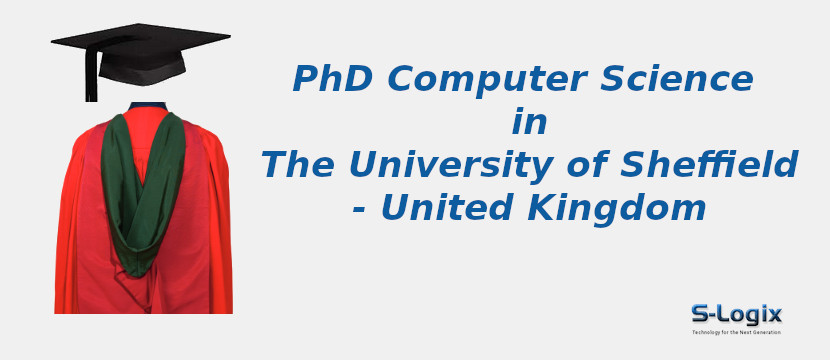The University of Sheffield is a publically-owned research institution based in Sheffield, South Yorkshire, England, and was established in 1897. The University of Sheffield spent £708.6 million on research and ranked among the leading ten UK universities for research award funding.
The University of Sheffield is among the top seven British universities based on postgraduate student registration. The University of Sheffield is endowing affiliate of the prominent Russell Group.
The University of Sheffield is also a member of the Worldwide Universities Network, the N8 Group of the eight most comprehensive research universities in Northern England, and the White Rose University Consortium.
The University of Sheffield is rated as a leading 100 universities worldwide by QS and 22nd by Time Higher Education for teaching excellence. According to the latest Research Excellence Framework, the University of Sheffield is ranked 11th in the UK for its research power.
The University of Sheffield delivers undergraduate and postgraduate degree programs under a huge list of courses in several departments, including Science, Arts and Humanities, Social Sciences, Engineering, and Medicine and Health.
The University of Sheffield offers life-magnifying research, innovation, and education to the students by promoting an ambitious, inclusive, collaborative community.
Address: Sheffield S10 2TN, United Kingdom
Phone: +44 114 222 2000
Email: e.a.wood@sheffield.ac.uk
Website: https://www.sheffield.ac.uk/
Computer science research areas at the University of Sheffield are given below;
• Machine Learning
• Natural Language Processing
• Speech and Hearing
• Visual Computing
• Algorithms
• Verification
• Complex Systems Modelling
• Organizations; Information and Knowledge
• Security of Advanced Systems
• Testing
Various research interests in computer science research at the University of Sheffield with respect to its computer science research areas are highlighted below;
Machine Learning -
• Bio-inspired Machine Learning
• Probabilistic Machine Learning
• Dimensionality Reduction
Natural Language Processing -
• Information Access
• Language Resources and Architectures for NLP
• Machine Translation
• Human-Computer Dialogue Systems
• Detection of Reuse and Anomaly
• Foundational Topics
• NLP for social media
• Biomedical Text Processing
Speech and Hearing -
• Computational Modeling of Auditory and Speech Perception in Humans and Machines
• Robustness in Speech Recognition
• Large Vocabulary Speech Recognition Systems and Their Applications
• Healthcare Applications of Speech Technology
Visual Computing -
• Computer Facial Modeling and Animation
• Digital Heritage
• Complex Systems Simulation,
• High Performance & Real Time Computing
• Research Software Engineering for GPU Computing and Interdisciplinary Application of Simulation & Visual Computing
• Multi-Sensor Perception
• 3d Mapping and Long-Term Robot Localisation in Changing Environments
• Autonomous Visually-Guided Robot Manipulation and Navigation
Algorithms -
• Theory of Bio-Inspired Computation and Artificial Intelligence
• Efficient Network Algorithms
• Complexity Theory
• Online Algorithms
• Learning-Augmented Algorithms
Verification -
• Unconventional Computing
• Semantics of Concurrent and Distributed Systems
• Logics, Algebras, and Formal Methods for Programs and Software Systems
• Grammar Inference
• Verified Testing Methods
• Verification of Multi-Core Programs and Weak Memory Models
• Security Verification
• Interactive and Automated Theorem Proving
Complex Systems Modelling -
• Collective Behaviour
• Computational Neuroscience
• Computational Physiology
• Mechanobiology
• Robotics
• Social Behaviour
Organisations, Information, and Knowledge -
• Sensing Over Large Scale
• Social Media Analysis
• Supporting Large Organisations
• Medicine, Health, and Wellbeing
Security of Advanced Systems -
• Security Policy and Requirements
• Architectural Design
• Security Verification
• Security Testing
• Formal Analysis of Security Properties
Testing -
• Model-Based Testing
• Search-Based Testing
• Security Testing
• Reverse Engineering
• Model-Driven Engineering
• Multi-Agent Modelling
• XML Data Processing
The University of Sheffield develops various research labs, centers, and groups to support its researchers and students; such centers and labs are
• Sheffield Robotics
• Insigneo
• Centre for Assistive Technology and Connected Healthcare (CATCH)
• Sheffield Institute for Translational Neuroscience (SITraN)
• Centre for Speech and Language Technology
• South-East European Research Centre (SEERC)
• Neuroscience Institute
• Sheffield Institute for Translational Neuroscience (SITraN)
Several scholarship programs emerge at the University of Sheffield as financial aid to the students. Some of their scholarship programs are;
• NCUK Postgraduate Scholarships
• Chevening Scholarships
• Allan and Nesta Ferguson Charitable Trust Masters Scholarships
• The University of Sheffield Africa Scholarship
• Gaza-Palestine Postgraduate Taught Scholarship
• Intake Education Taiwan Scholarship
• Sir Sze-yuen Chung Scholarship
• Professor David Locker Scholarship
• BUTEX Scholarship
• Sanctuary Scholarships
• Gilman International Scholarship
To apply for the Computer Sciences PhD program at the University of Sheffield, the given admission procedure should be followed;
• Applicants must complete the online application form and submit it by providing their personal information, including English language ability, previous education and employment, and selection of course.
• Supporting documents that are needed to be attached are:
• Proof of applicants previous degrees
• Official translations into English
• Academic reference letters
• English language certificates for International applicants
• Supporting statement with relevant research proposal
• Curriculum vitae (CV)/resume
